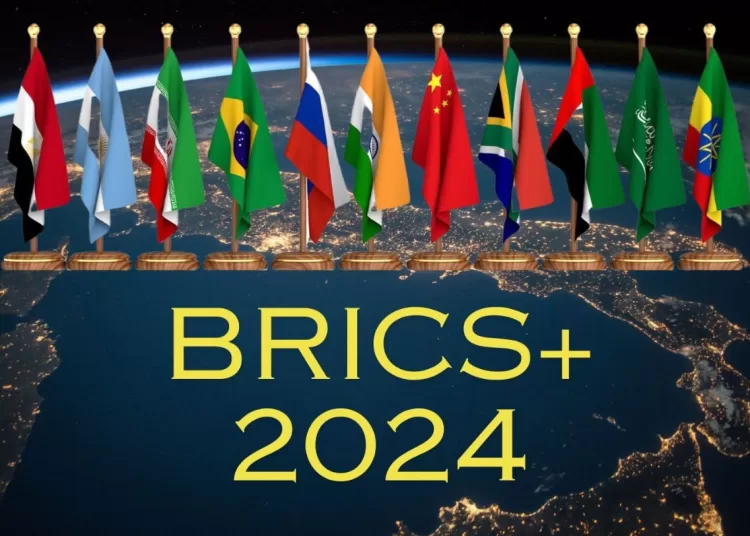In a world where economic power dynamics are shifting, the BRICS Forum emerges as a key player on the global arena, with over 40 per cent of the world’s population and a substantial share of global GDP, making it an essential platform for fostering collaboration, investment, and trade among emerging economies.
Originally comprising Brazil, Russia, India, China, and South Africa, BRICS last January, welcomed new members, Egypt, Ethiopia, Iran, Saudi Arabia, and the UAE, forming a new economic bloc known as BRICS+
BRICS is not merely an acronym; it embodies a vision for a multipolar world where developing nations can assert their interests and collaborate for mutual benefit.
Established to provide a counterbalance to Western-dominated institutions, BRICS facilitates dialogue and co-operation across a range of sectors, including economics, politics, and culture. It emphasises sustainable development, addressing common challenges, and promoting investment opportunities that can uplift member nations.
As BRICS members work to bolster economic ties, they also provide a unique opportunity for themselves to explore investment and trade avenues that may not be available in traditional markets. The forum encourages innovation and growth through facilitating partnerships in diverse fields such as technology, agriculture, and energy.
Thanks to strategic location and growing economy, Egypt stands to benefit significantly from its membership in BRICS. The forum presents a vital platform for Egyptian businesses to connect with potential investors and trade partners, creating pathways for economic growth and development.
Egypt has been experiencing a period of substantial economic reform and development, positioning itself as a key player in the BRICS landscape.
The Egyptian government has launched a series of initiatives aiming at revitalising the national economy, with focus on enhancing the role of the private sector. Setting a cap on public investments has topped these the government’s moves, for the sake of creating a more conducive environment for private enterprises to flourish.
Additionally, the Egyptian government is actively pursuing its Initial Public Offering (IPO) programme, under the State Ownership Policy Document, which seeks to boost the private sector’s engagement in the economic activities. Not doubt, this will help lure more foreign investments and stimulate the economy.
Egypt is making strides in crucial sectors such as communications and information technology (CIT), manufacturing, and renewable energy. The focus on green hydrogen and other sustainable energy sources highlights Egypt’s commitment to sustainable development, aligning with the BRICS agenda of fostering eco-friendly economic growth.
Engagement with the BRICS Forum holds immense significance for the country. As the country, is navigating its economic reforms, the potential for increased trade and investment from BRICS nations can provide the necessary impetus for growth. Collaboration could lead to transfer of knowledge, technological advancement, and accessing new markets. These are all essential to Egypt’s aspirations to become a regional economic hub.
Furthermore, Egypt’s participation in BRICS demonstrates the country’s intent to play a more active role in the global economic affairs, aligning itself with other emerging economies to influence decision-making that affects their collective interests. As Egypt positions itself within this influential group, it stands to enhance its diplomatic and economic ties, not only with BRICS members, but also with other nations seeking partnerships in the Global South.
As BRICS continues to grow and evolve, its impact on member nations, particularly Egypt, becomes increasingly significant. With focus on investment and trade opportunities, Egypt is poised to leverage its membership in the forum to drive its economic reform agenda. Collaboration within BRICS can serve as a catalyst for Egypt’s development, helping to pave the way for a more diversified and resilient economy in the years to come.






Discussion about this post